Literature of Contact and Anthropological Thought, 16th-18th Century
Horaire:
mercredi 10h à midi
Instructeur:
A. Motsch
Endroit:
Veuillez nous contacter.
Salle:
Veuillez nous contacter.
Description
This course analyzes the link between contact literature (travel literature, discovery literature, colonial literature) and the establishment of modernity and its discourses of knowledge. Taking into account the philosophical and political debates between the 16th and 18th century, the course seeks to account for the European expansion, in particular the colonization of the Americas, and the emergence of discourses of knowledge about other cultures.
Two aspects ought to be singled out here: the knowledge produced about «others» and the new consciousness of Europe’s own identity which was profoundly transformed in this very contact. The course follows the hypothesis that the philosophical and modern definition of modern Man is itself a result of the contact between Europe and its others. The discussions of the texts privilege epistemological aspects and anthropological and political thought. More precisely, the goal is to trace the various ways the emergence of the modern subject is tied to its construction of alterity. Literary texts for example will therefore be questioned about their social and political dimensions within the episteme of the time.
A prominent issue will be the intercultural dynamic between the 16th and 18th centuries between Europe and the rest of the globe, but also within Europe itself. The development of new discourses of knowledge will involve texts of very different nature : literary, ethnographic, political, philosophical, historical, etc. Other aspects to be discussed are the issue of literary genres and canon formation, the conditions which make anthropological writing possible and the conceptualization of the «other» (ethnicity, race, religion, gender, etc.)
NOTE:
These texts to be studied could include the following ones. A final selection will be announced at the beginning of class and take into consideration particular interests of the students. This being said, suggestions are welcome and changes will happen, especially in the secondary literature which will reflect the latest scholarship. Texts discussed in class will be available in English translations.
Primary texts
- Montaigne, Essais (Des cannibales, Des coches)
- José de Acosta, Historia natural y moral des las Indias
- Bernardino de Sahagun, Historia general de las cosas de Nueva Espana
- Robert Beverley, The History and Present State of Virginia
- Walter Raleigh, The Discovery of Guiana
- Jean de Léry, Histoire d’un voyage faict en la terre du Brésil
- André Thévet, Singularitez de la France antarctique
- Johanes Boemus, Omnium gentium mores leges et ritus…
- Jesuit Relations (Lejeune, Brébeuf)
- Lafitau, Mœurs des sauvages amériquains comparées aux mœurs des premiers temps
- Lahontan, Dialogues du baron de Lahontan…
- Rousseau, Discours sur l’origine de l’inégalité entre les hommes
- Fontenelle, Entretiens sur la pluralité des mondes
- Montesquieu, De l’esprit (extraits)
- Immanuel Kant, Anthropolgie in pragmatischer Hinsicht
Secondary texts
- Joan-Pau Rubiés & J. Elsner, Voyages and Visions
- James Axtell, After Columbus, Essays in the Ethnohistory of Colonial North America
- Marie Louise Pratt “Arts of the contact zone”
- Klaus Vogel, “Cultural variety in a Renaissance Perspective: Johannes Boemus on “The manners, laws an customs of all people”
- Michel de Certeau, The writing of History (L’écriture de l’histoire (extraits))
- Joan-Pau Rubiés, “The concept of cultural dialogue…”
- Stephen Greenblatt, Marvelous Possessions
- Johannes Fabian, Time and the Other
- Peter Hulme, Colonial Encounters
- Anthony Pagden, The Fall of Natural Man
- José Rabasa, Inventing America: Spanish Historiography and the Formation of Eurocentrism
Travaux requis
one course presentation 10%
a literature review (3-5 pages): 20%
Written assignment (ca. 25 pages) 60%
Overall assessment 10%


